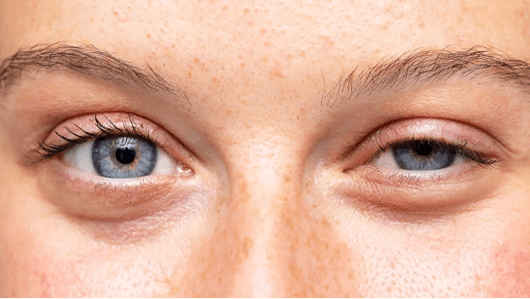Denizli aesthetic surgery aftercare is very important to have a healthy recovery process after the operation process. Knowing how to cope with the pain and discomfort you may experience in the first days will help you have a more comfortable process. Also, following the rules of wound care and hygiene can speed up the healing process. In this article, let’s explore the most important points of care after plastic surgery. Remember, you can make your process easier by taking the right steps!
Recommendations for the first days after plastic surgery
Proper care is very important in the first days after plastic surgery. Taking some simple steps to protect your body and soul during this process will speed up your recovery. Here are the recommendations you should pay attention to for care after Denizli plastic surgery:
Rest In the first days, your body needs rest to recover. If necessary, spend the day sleeping and resting.
Medication Remember to take the medicines recommended by your doctor regularly. Treat pain and swelling in a timely manner.
Frozen compress You can use a cold compress to reduce swelling and bruising. This provides relief in the first days.
High pillow: Elevating your head while sleeping helps prevent swelling.
Observe your wound: If you notice any abnormalities or signs of infection, contact your doctor immediately.
By following these recommendations, you can spend your Denizli aesthetic surgery aftercare process in a healthy and trouble-free way. Remember, treating yourself gently during this time will speed up your recovery.
Coping with Pain and Discomfort
Pain and discomfort are normal in the aftercare process after Denizli plastic surgery. However, you can have a more comfortable healing process thanks to some methods. Here are the recommendations:
- Use medicines regularly: You can reduce pain by taking the painkillers recommended by your doctor on time.
- Hot and cold compresses: Regularly applying cold compresses to the sore area reduces swelling and discomfort. In addition, a warm compress can also relieve muscle tension.
- Take care to rest: Adequate rest is important to help the body recover. If possible, prefer to stay in bed for the first few days.
- Distracting activities: Keep your mind occupied with activities such as watching a movie, reading a book or listening to music to ease the pain.
Remember, Denizli aesthetic surgery aftercare will help you have a pleasant recovery process. Take care of yourself!
Wound care and the importance of hygiene
Post-surgical care in Denizli is an extremely critical process, especially in terms of wound care and hygiene. After surgical intervention, the first step to achieve the look you have been dreaming of for years is to take proper care of the scars. Here are some important points to consider:
- Wound Cleaning: Gently wash the wound site with soap at least once a day. Cleanliness reduces the risk of infection and speeds up healing.
- Drying: After the wound has been cleaned, pat it dry, not with a towel, but with a gentle tampon; this prevents irritation.
- Dressing: Protect the wound using bandages recommended by your doctor. Change the bandages regularly.
- Hygiene Touch the wound using gloves. This reduces the passage of bacteria.
Remember that this time you think you are in prison will pass with the right care and you will quickly get the best results. Do not neglect your care after Denizli plastic surgery and take care of yourself!
Nutrition Tips During Recovery
Proper nutrition is of great importance in the care process after Denizli plastic surgery. Here are some important points to consider to support your body’s healing process:
- Adequate protein intake: High-quality protein sources (e.g. chicken, fish, yogurt) help repair body tissues. Take care to meet your daily protein needs.
- Foods rich in vitamins and minerals: Vegetables and fruits strengthen your immune system. Especially foods containing vitamin C (oranges, lemons) accelerate the healing process.
- Water consumption: Drinking enough water supports the elimination of toxins from the body. Drink at least 2-3 liters of water a day.
- Balanced nutrition: Create a healthy diet by balancing carbohydrates, fats and protein. Avoid fast food and processed foods.
By following these nutritional tips during the care phase after Denizli plastic surgery, you will both speed up your healing process and protect your general health. Remember, a healthy eating habit will make your life better quality!
Restarting Physical Activities
It is very important to restart physical activities in the care process after Denizli plastic surgery. However, this process must be managed carefully. Here are some tips to help you restart physical activities during the recovery process:
Prioritize rest: In the first days after surgery, resting your body is key. Adequate rest will speed up your recovery.
Start with light exercises: In the first few weeks, you can do light activities such as walking. This improves blood circulation and supports the healing process.
Consult your doctor: Always consult your doctor to find out what activities you can do. Each individual’s process is different.
Avoid heavy activities: Avoid heavy lifting or strenuous exercise for the first few weeks.
In your care after Denizli plastic surgery, restarting physical activities at your own pace is a critical step for a healthy recovery process. Remember, be patient and respect your body!
Benefits of receiving psychological support
Receiving psychological support during the care process after Denizli plastic surgery is of great importance in terms of overall recovery and happiness. Some people may experience anxiety, stress and emotional fluctuations following surgical procedures. Here are the benefits of psychological support:
- Emotional stabilization: Psychologists help you cope with emotional difficulties.
- Increased self-confidence: Positive feedback makes you feel better about yourself.
- Stress reduction: Support reduces your stress levels and speeds up the healing process.
- Strengthening social relationships: Shared experiences strengthen your ties with your social circle.
- Inner awareness: Guidance in understanding and accepting your own feelings.
By adding psychological support to your care practices after Denizli plastic surgery, you can have a healthier healing process both physically and mentally. Remember, getting support helps you take a strong step forward!
Frequently Asked Questions
What kind of care should I do after plastic surgery?
Care after plastic surgery greatly affects your recovery process. First of all, follow your doctor’s recommendations to the letter. It is very important to keep the area clean after the operation, change the recommended bandage regularly and rest during the first days. Eating a healthy diet, drinking plenty of water and getting enough sleep also contribute to your body’s recovery. You should gradually return to your normal life and avoid heavy activities.
When can I return to my normal activities after surgery?
In general, your return to your normal activities after plastic surgery varies depending on the procedure performed and your body’s healing process. You can return to your daily routines in about 1-2 weeks, but it may take at least 4-6 weeks to return to activities such as heavy physical activities and sports. During this time, you should listen to your body and have regular check-ups with your doctor.
When are permanent results visible after plastic surgery?
The permanence of the results after plastic surgery depends on the type of procedure performed and the personal healing process. Usually, the results start to be clearly visible a few weeks after surgery; however, it may take 3-6 months for full results to appear. During the healing process, edema, bruising and swelling may occur, so you should be patient and observe the healing process.
Is postoperative pain and discomfort normal?
Yes, a certain amount of pain and discomfort after plastic surgery is normal. This is a natural reaction of the body to the surgical site. You can ease your discomfort by using painkillers recommended by your doctor. However, if you experience severe pain, abnormal swelling or bleeding, you should consult your doctor immediately.




